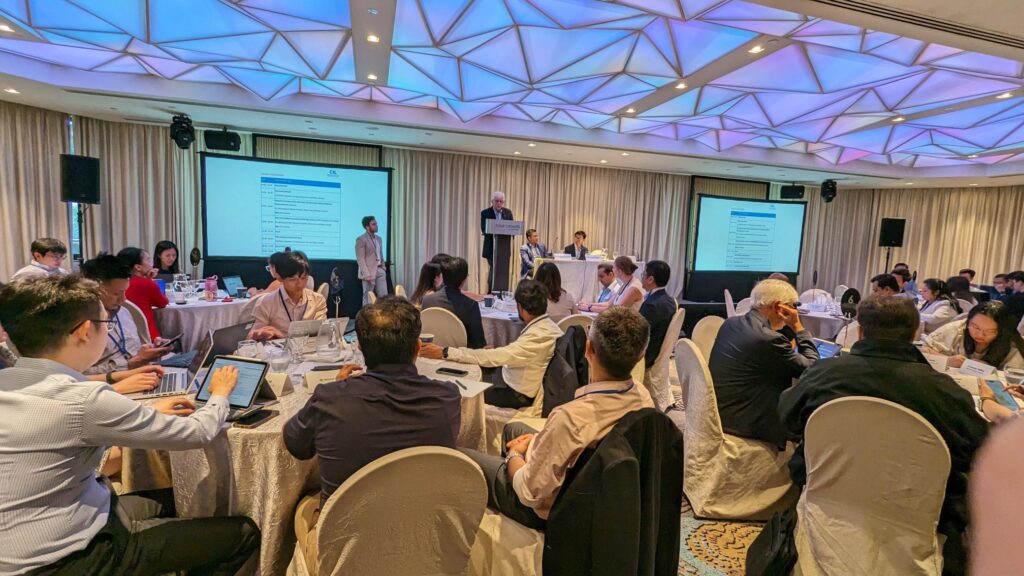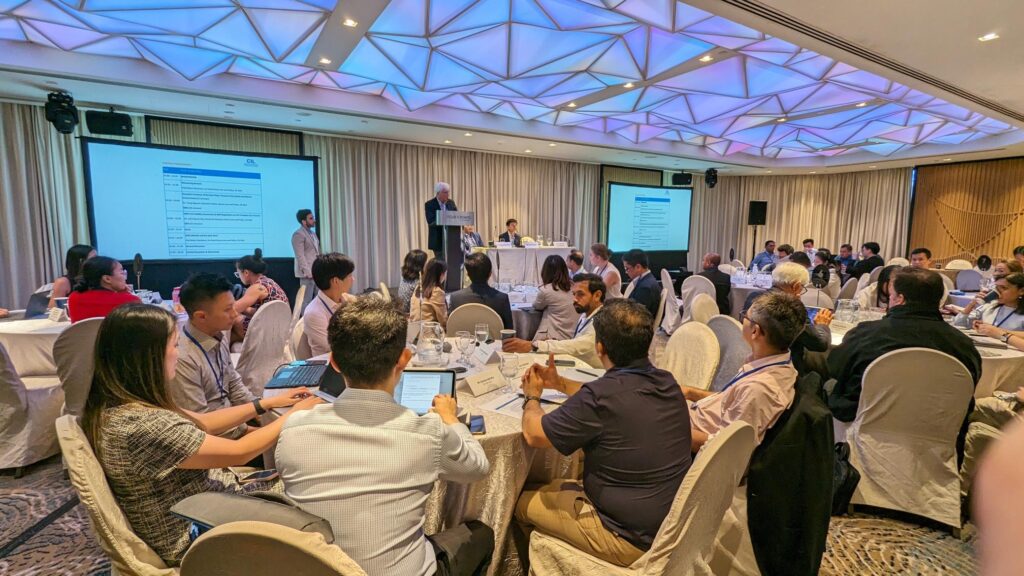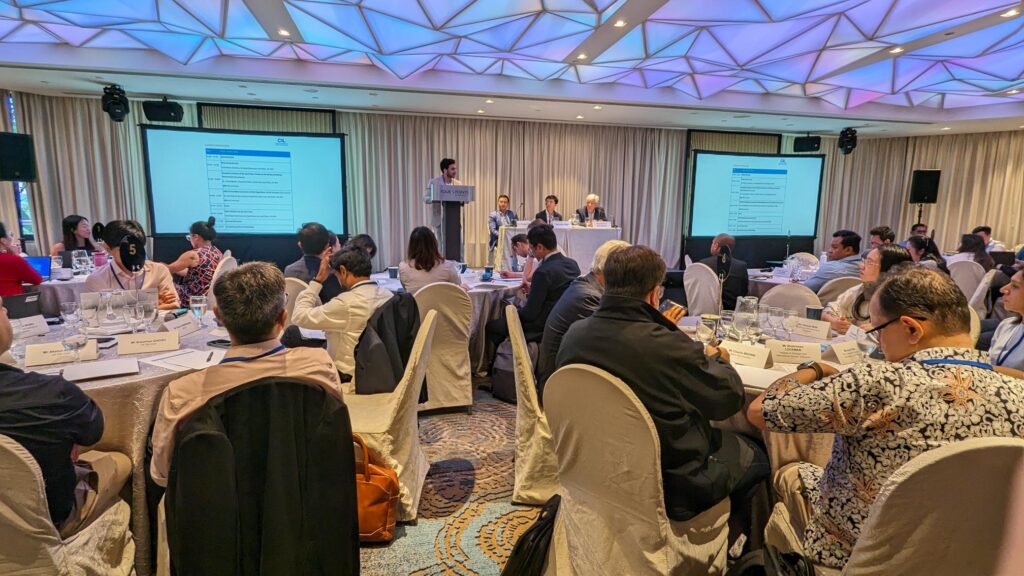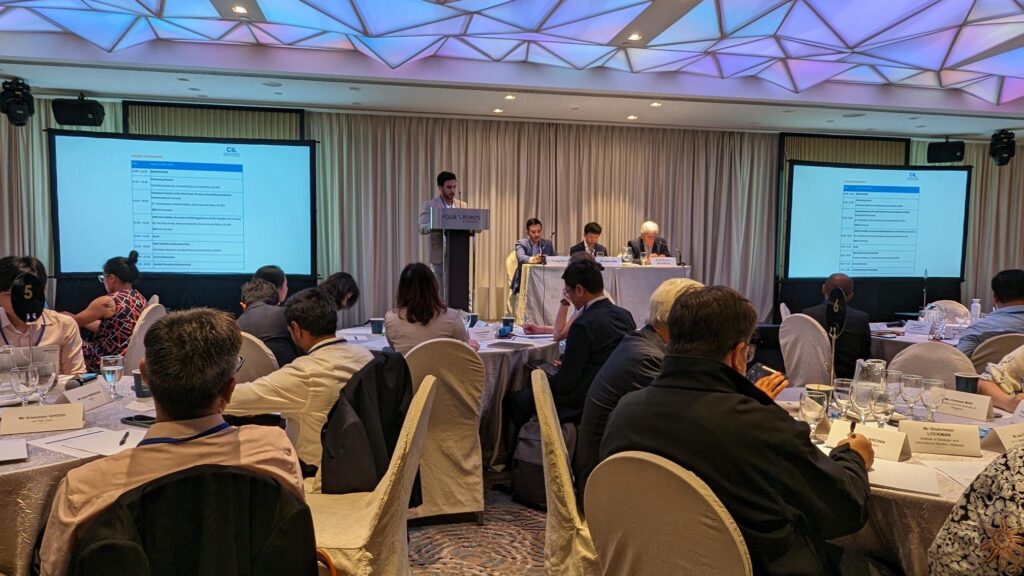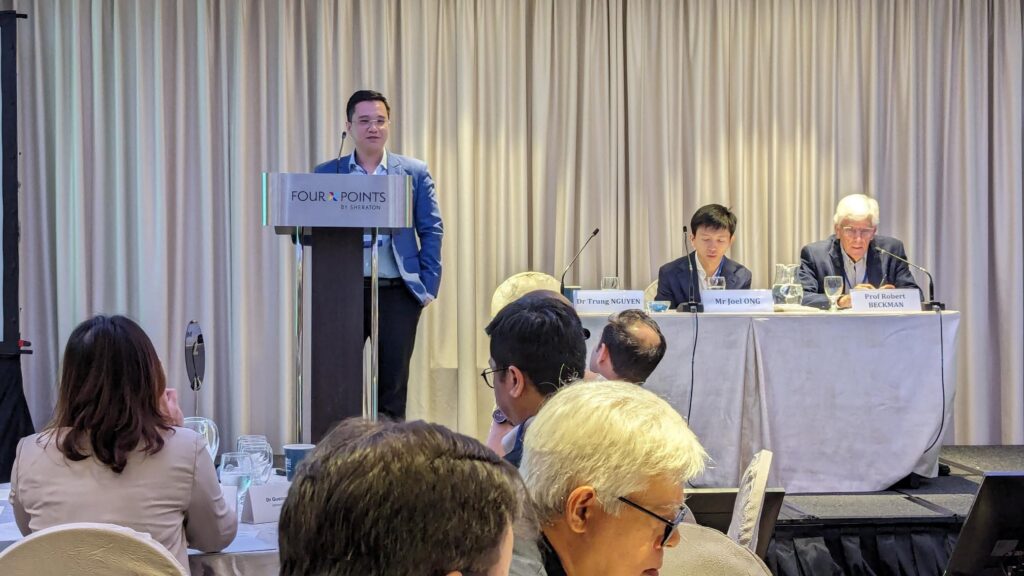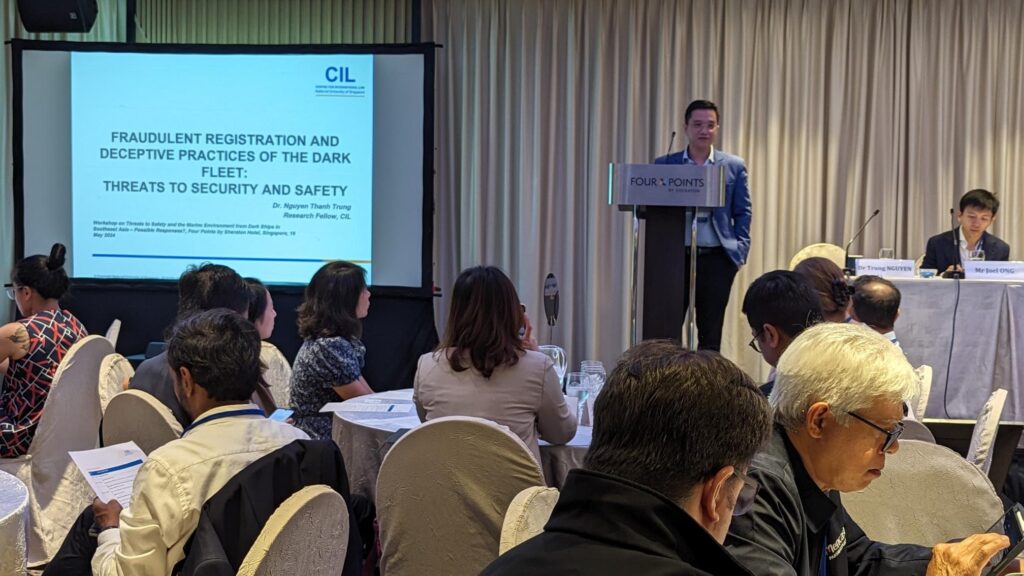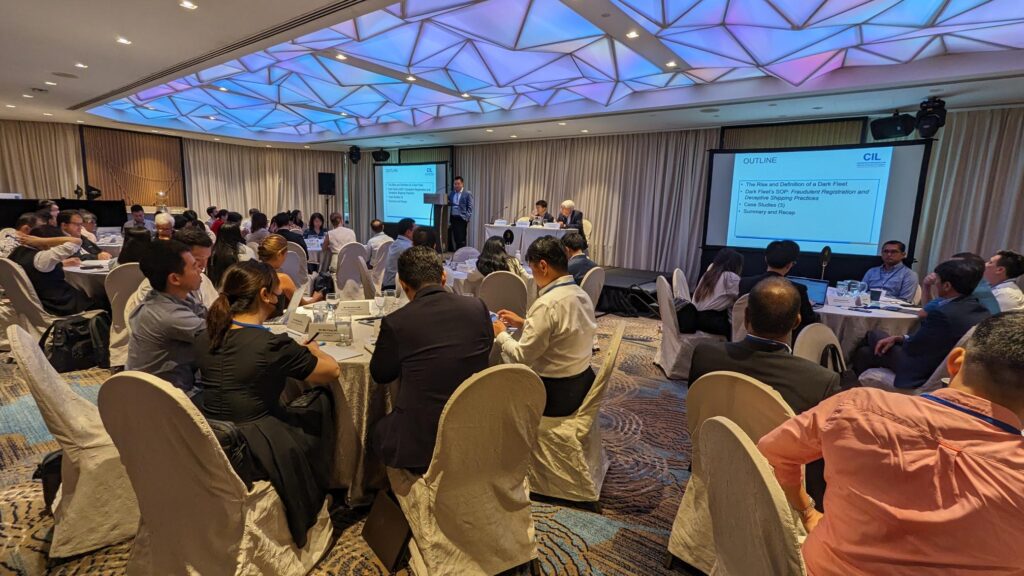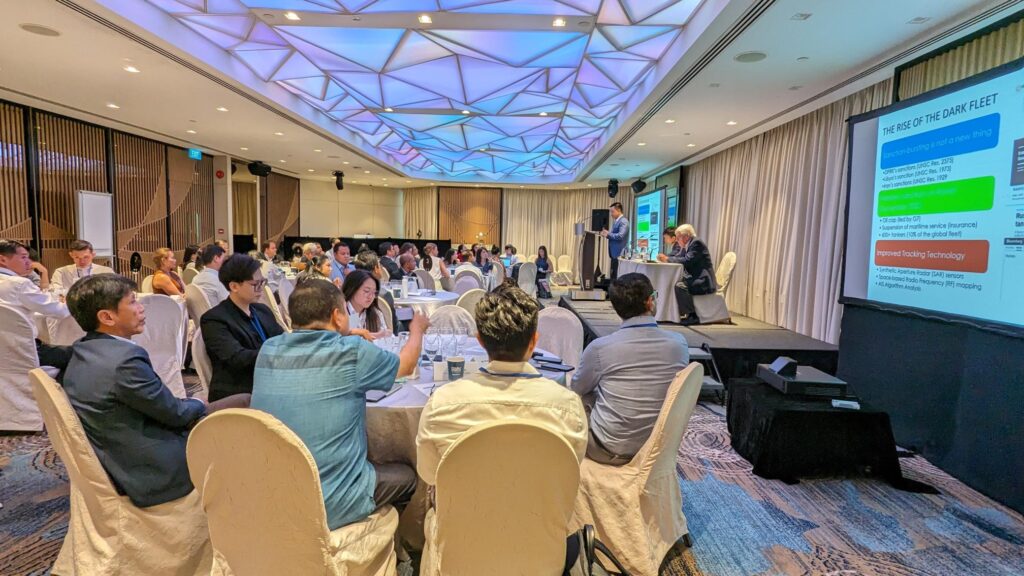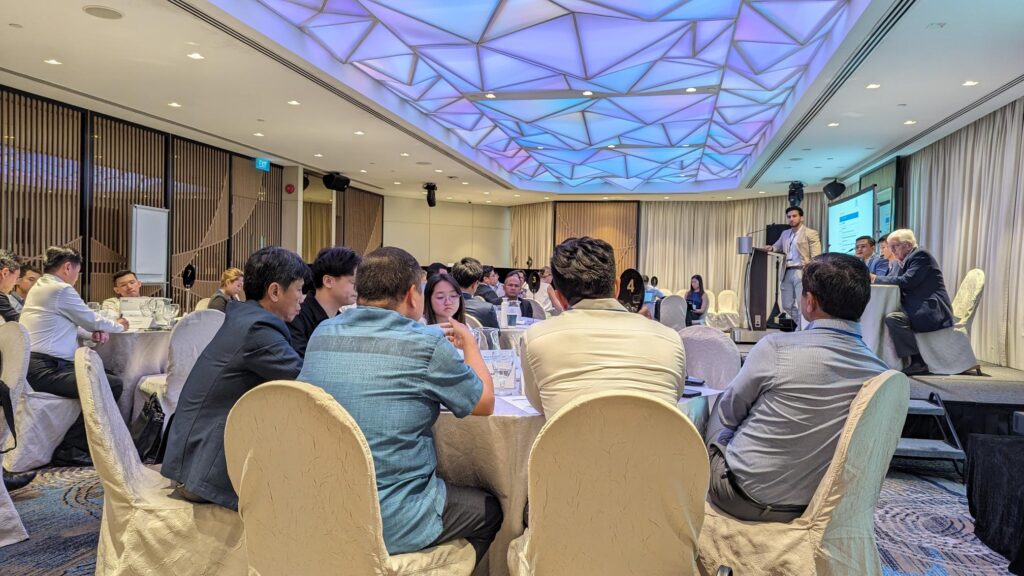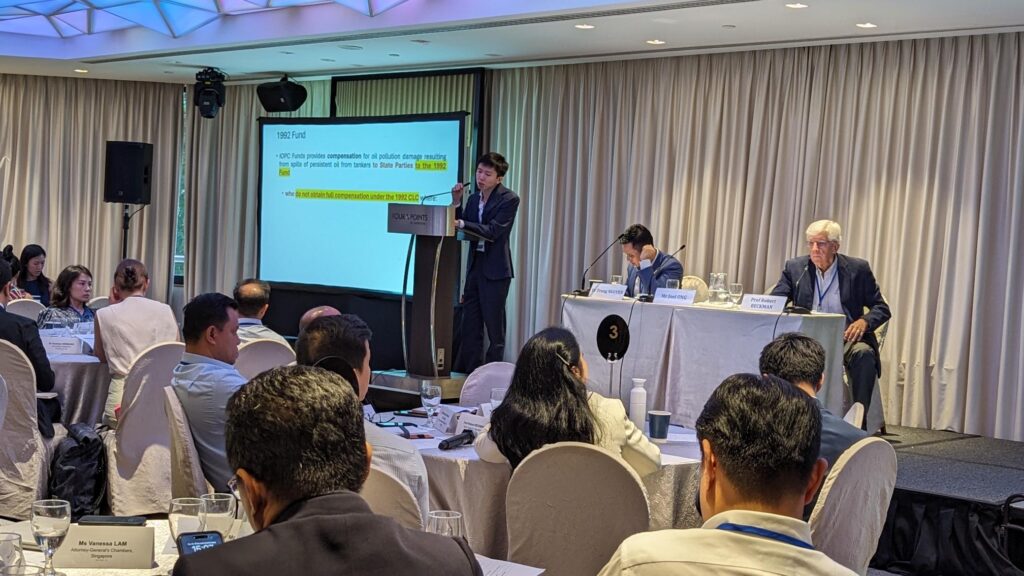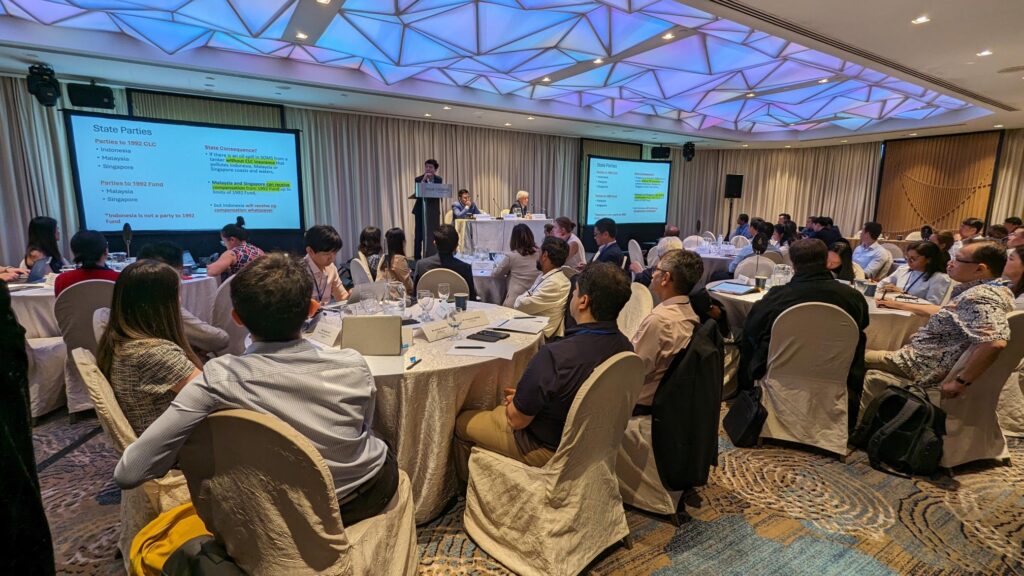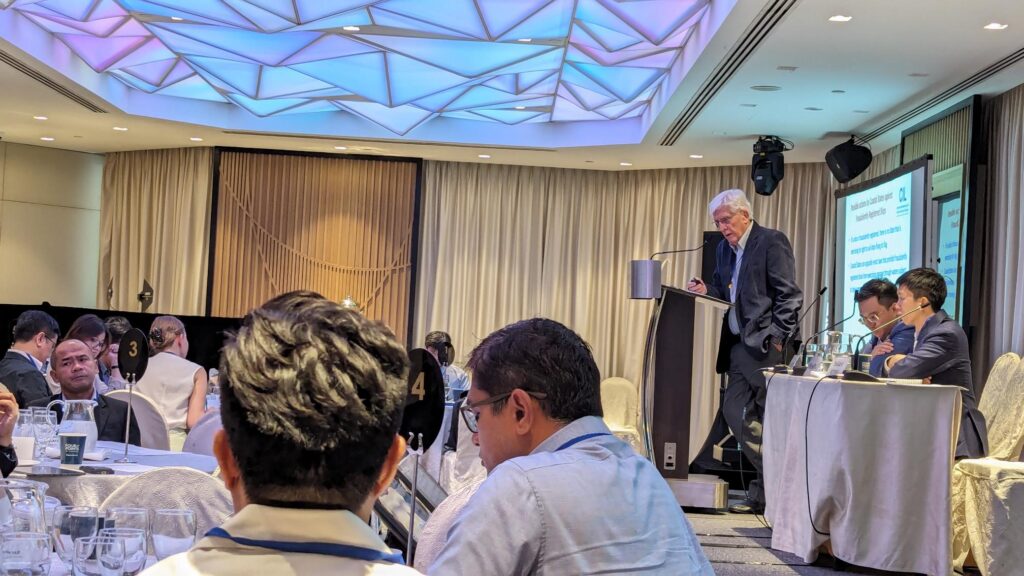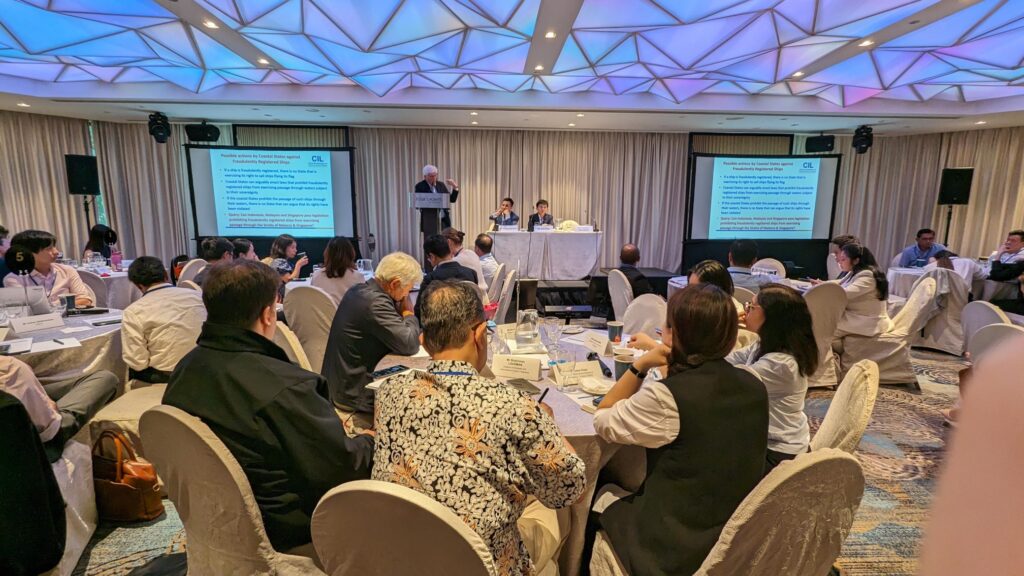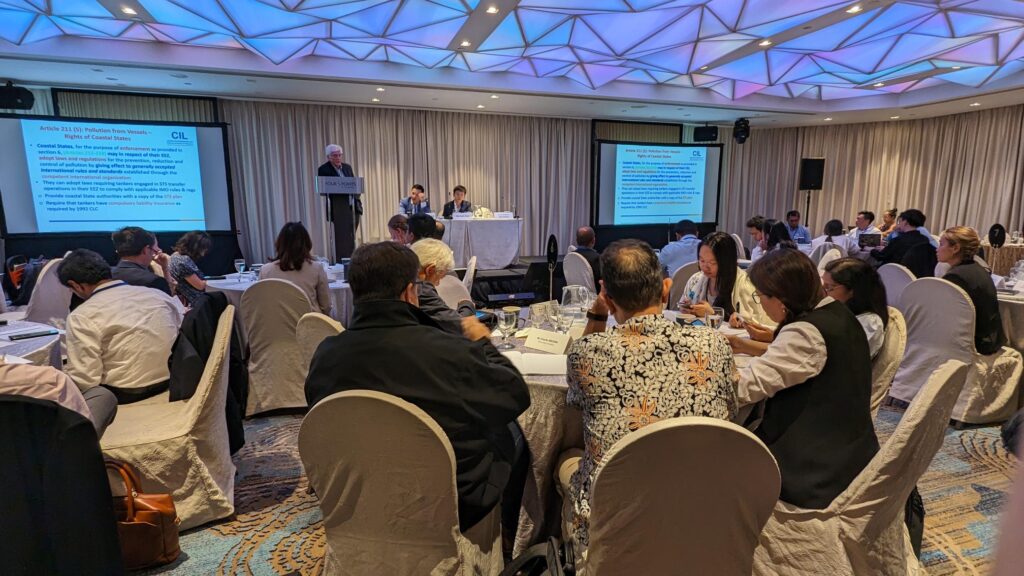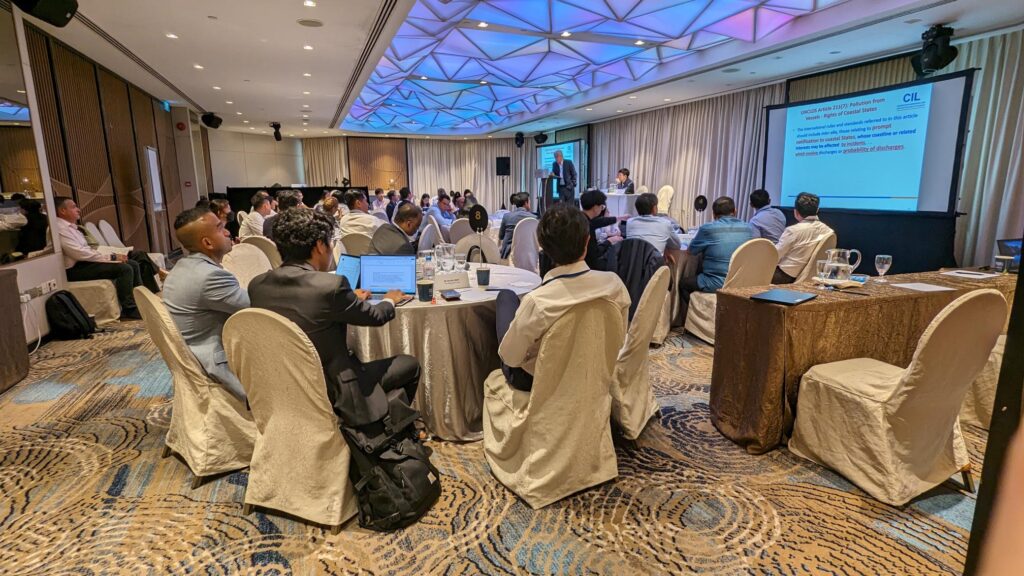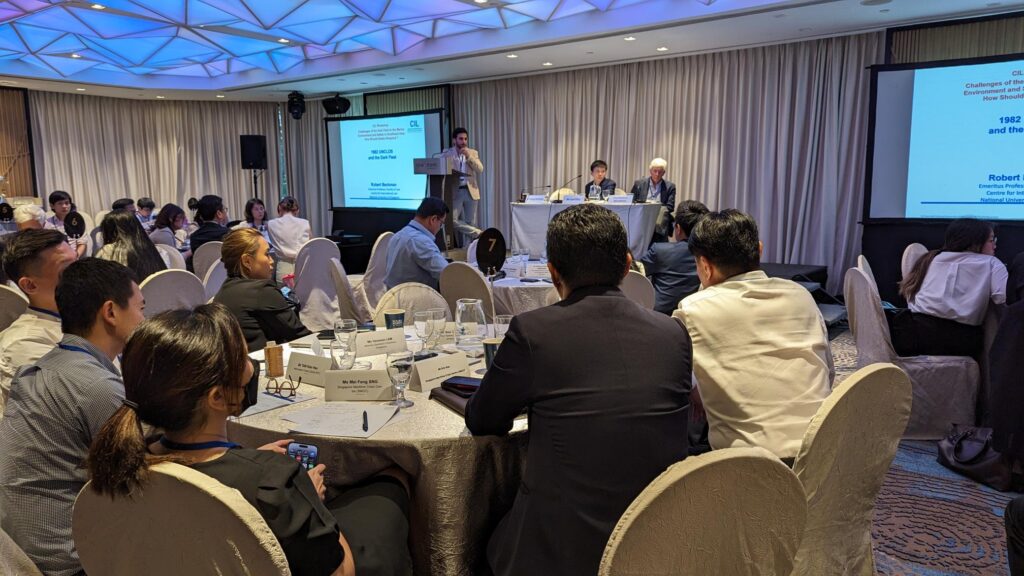Venue
Start
End
Time
Safety and Marine Environmental Challenges from the Dark Fleet in Southeast Asia: How should States respond?
14:00 - 18:30, 16 May 2024 The Four Points by Sheraton, Singapore
This Workshop is being organized pursuant to the 2023 MPA-CIL Oceans Governance Research Programme, which is generously funded by the Singapore Maritime Institute (SMI-2023-MA-03)
Post-Event
On 16 May 2024, the Ocean Law and Policy team of the Centre for International Law (CIL) organized a Workshop on Safety and Marine Environmental Challenges from the Dark Fleet in Southeast Asia: How should States Respond? The Workshop was an in-person, invitation-only event and was held at Four Points by Sheraton under the Chatham House Rule.
Researchers at CIL made presentations on (1) The Fraudulent Registration and Deceptive Shipping Practices of the Dark Fleet; (2) The Legal Framework stipulated in the 1992 Civil Liability Convention and the IMO Regulation on Ship to Ship Transfers and (iii) the 1982 UNCLOS and the Dark Fleet. The presentations were followed by a general discussion by the speakers and the participants exploring options for government authorities and shipping industries to cooperate to address the threats of the dark fleet to the marine environment of the littoral states surrounding the Strait of Malacca and Singapore.
The Workshop was attended by representatives from the shipping industry, academics and government officers from Singapore, Indonesia and Malaysia. The organizers were especially pleased that representatives from the shipping industry actively participated in the discussions.
This Workshop was part of CIL’s research on the international regulation of shipping under the Maritime Port Authority (MPA)-CIL Oceans Governance Research Programme funded by the Singapore Maritime Institute.
A detailed Report on the outcome of the Workshop will soon be available.
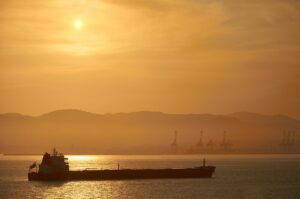
Pre-Event
The sanctions of several countries on Russia’s oil trade have led to the proliferation of oil tankers in the “dark fleet” (‘dark ships’). They are vintage tankers that have an average life span of more than 15 years and that engage in deceptive practices such as masking or spoofing their automatic identification systems (‘AIS’) to evade sanctions. Many have untraceable owners, and the ship owners often do not have insurance for oil pollution damage as is required by the 1992 Civil Liability Convention.
To avoid inspection or regulation by port States and coastal States, these tankers do not enter ports or conduct any operations in the territorial sea of coastal States. They anchor in the exclusive economic zones (‘EEZ’) of coastal States and engage in ship-to-ship transfer (‘STS’) with other vessels in order to hide the origin of their cargo, circumvent sanctions, and avoid the jurisdiction of coastal States. These STS operations are often unreported and they do not comply with the IMO regulations on STS transfers, heightening the risks of a major oil spill and pollution of coastal States’ marine environment.
The issue of dark ships is of particular importance to Southeast Asia because oil tankers in the “dark fleet” have been engaging in unregulated STS of oil in the EEZ of Malaysia off the coast of Johor. One recent example of the risks posed by such ships is the Pablo, an oil tanker flying the flag of Gabon which exploded off the coast of Johor in May, 2023, killing several crew members. Fortunately, the Pablo had no cargo at the time of the explosion. If it had been fully laden, it could have resulted in an environmental catastrophe. It has been reported that the Pablo had no insurance and that its owner could not be identified.
Notably, in response to the proliferation of the “dark fleet”, the Assembly of the IMO, at its thirty-third biennial meeting on 6 December 2023, adopted Resolution A.1192(33) urging Member States and all relevant stakeholders to promote actions to prevent illegal operations in the maritime sector by ships in the “dark fleet”.
CIL has been following the work of the IMO on the safety and security of international commercial shipping with a special focus on the Southeast Asian region. In May, 2023, CIL organised a Conference on Challenges in Addressing Potential Threats to the Security of Commercial Shipping in South-East Asia. It was a success because of the active participation of the shipping industry, governmental agencies and academics. CIL researchers have been researching on the dark ships issue from the law of the sea perspective (see here and here).
As a follow-up to the 2023 Conference and in response to new developments at the IMO, CIL will host a half-day, invitation-only workshop from 14.00 to 18.30 on the 16th of May 2024 at the Robertson Room, the Four Points by Sheraton, Singapore to discuss law and policy issues relating to the prevention, detection and reporting of dark fleets and their illegal operations. In this Workshop, CIL hopes to bring together representatives from governments, the shipping industry, and academia.
This is an invitation-only event





